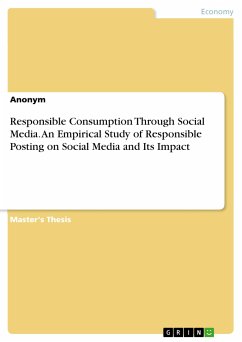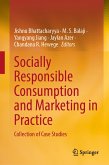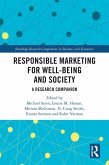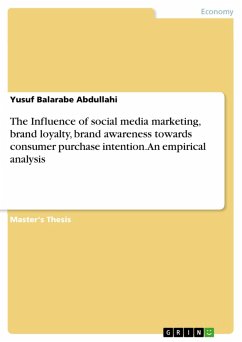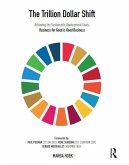Master's Thesis from the year 2022 in the subject Business economics - Offline Marketing and Online Marketing, grade: 1,7, University of Applied Sciences Mainz, language: English, abstract: Social food enterprises seek to positively impact global social and environmental grievances within the food industry. In their marketing, they rely on cost-effective channels such as social media, which is equally popular with consumers as a source of information about sustainability and food. The thesis examines the share of social media posts addressing impact topics in social food enterprises' total posts and which key characteristics these possess. Impact-posts' effect on concern for the environment/society and environmentally/socially responsible consumer intentions is tested. Both qualitative and quantitative content analysis were used to empirically identify the content characteristics of social media impact-posts from social food enterprises and their share in total posts. For this, a purpose-built category system was developed based on existing content analyses. Subsequently, a randomized between-subjects online experiment was used to assess the influence of impact-posts on the dependent variables. Results were analyzed using multivariate analysis of covariance. Base for the content analysis was a sample of 454 Instagram posts of real-life social food enterprises including 121 impact-posts. The experimental study data were collected via an online survey with German-speaking participants (N = 234). Findings: The content analysis revealed that impact topics are addressed slightly less frequently than product topics by social food enterprises on Instagram. Within impact-posts, social and environmental topics are generally focused on separately and with similar frequency. Enablement, support, and philanthropy just as environmental concerns represent the most common themes. Moreover, photos depicting people and supplemented with text are primarily used with both text and imagery being kept neutral to positive. Only one third of the impact-posts simultaneously address a product of the brand. The experimental study revealed no statistically significant influence of the impact-post opposed to its non-impact counterpart on concern for the environment/society and environmentally/socially responsible consumer intentions.
Dieser Download kann aus rechtlichen Gründen nur mit Rechnungsadresse in A, B, BG, CY, CZ, D, DK, EW, E, FIN, F, GR, HR, H, IRL, I, LT, L, LR, M, NL, PL, P, R, S, SLO, SK ausgeliefert werden.

